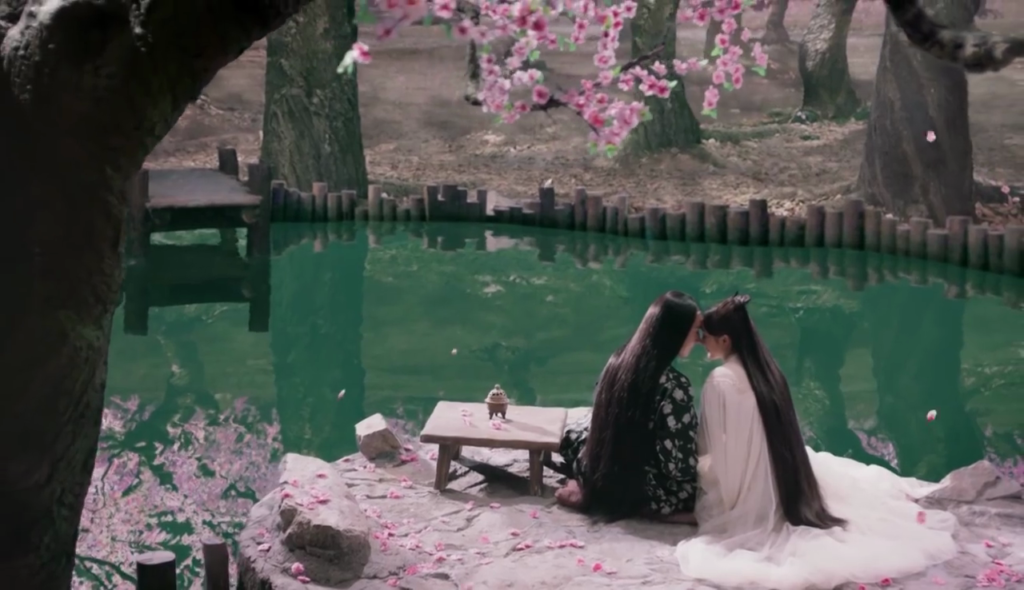Term of the Day: 桃花 // Tao Hua // Peach Blossoms
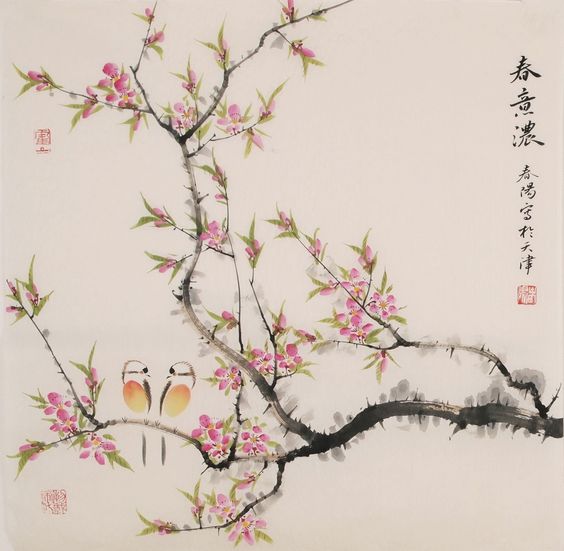
When Chinese speakers refer to peach blossoms, they’re typically talking about something other than the pretty flowers blooming on peach blossom trees.
In Mandarin, the word for peach blossoms is taohua and it serves as double entendre. Taohua can be used to describe someone’s admirer, potential love interest, and basically any romantic relationship they’ve come across, no matter how significant it is.
You can have bad tao hua and you can have good tao hua.
You can have a tao hua that’s gone stale or even one that’s never truly bloomed.
You can also have a lot of taohua, regardless of if they turn out good or bad.
Another phrase people love to use is rotten tao hua (爛桃花 // lan tao hua). Literally, it means rotten peach blossom. Case Study: I had my fortune read some time ago and was told that I would have some tao hua in the following year. And I guess I did have one, but it ended before anything could really happen, all while leaving a sour taste in my mouth. Nevertheless, my mother advised that it was still a tao hua. This rotten experience still technically counts.
In Ten Miles of Peach Blossoms, taohua as a metaphor for love is not subtle by any means. It’s the ‘beat you with over the head with it five times in a row’ kind of unsubtle. If I had a shot for each time the novel or drama reference it, I would probably be drunk out of my mind within the first 30 minutes.
Okay, maybe that’s a bit of an exaggeration, but my point still stands!
Note: Major plot spoilers and details ahead for Ten Miles of Peach Blossoms.
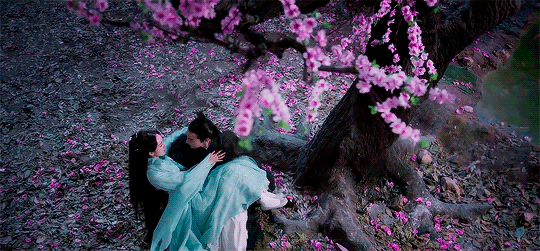
The high god, Zhe Yan, lives in a peach blossom forest that serves as a point of connection for our main lovebirds, Bai Qin and Ye Hua. Bai Qian spent much of her childhood in this forest and sees it as a second home. She even uses it as a hiding spot early on to avoid her first (doomed) arranged marriage to Ye Hua’s uncle.
When Bai Qian meets Ye Hua for the second time (after Su Su dies), the peach blossom forest and Zhe Yan’s homemade peach wine is what brings her and Ye Hua back together.
Our keeper of the forest, Zhe Yan, also serves as a huge catalyst that helps them fall in love again, bringing them together in one way or another in various ways.
In the novel, Bai Qian often notes the scent of peach blossoms she smells on Ye Hua. During her ascension trial as mortal, Su Su, she also loved peach blossoms and was living in a peach blossom forest when she and Ye Hua first fell in love in the mortal realm.
Some time later, Su Su asks yehua if the new home he’s planning for them to move into has peach trees. He replies: No, the earth there may not suitable for growing them, but they could give it a shot and try planting some anyways.
Oof, talk about some bad foreshadowing. Spoiler alert: They never got to plant any trees.
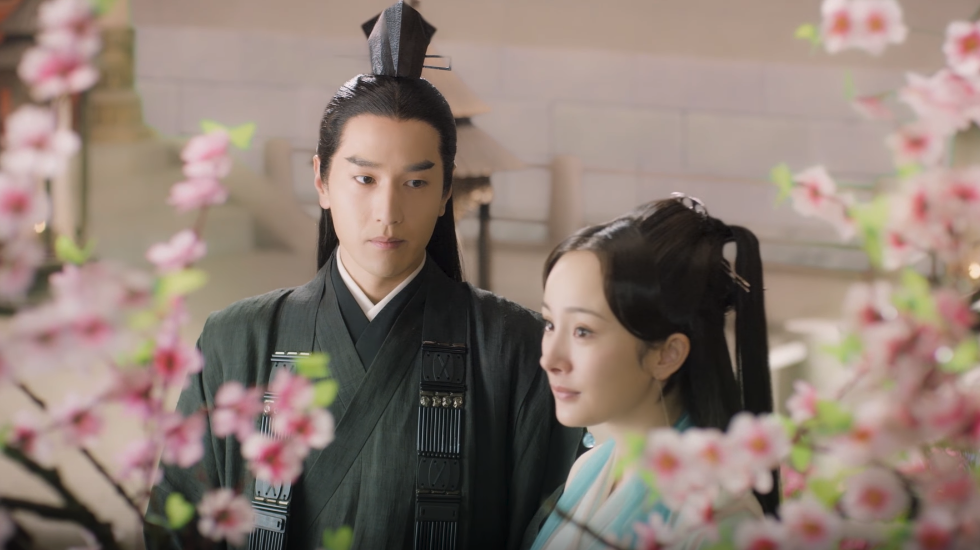
After Su Su leaves the Nine Heavens by jumping down Zhu Xian Terrace, Ye Hua commemorates her by planting peach trees throughout the palace she lived in. The first time those trees blossom is 500 years later (300 years later in the drama) when he meets her again. This time, she’s in her original form as High Goddess Bai Qian. As fate would have it, she is the fiancée he’s been arranged to marry since childhood but has never met.
Bai Qian mentions in the novel that she’s only had five taohua in her lifetime, most of which withered before they could bloom. While the one she had with Ghost Prince, Li Jing, might’ve been considered a good one, it was only good as far as looks and appearances were concerned. That, too, withered away all too soon.
The last and most important tao hua is, of course, Ye Hua.
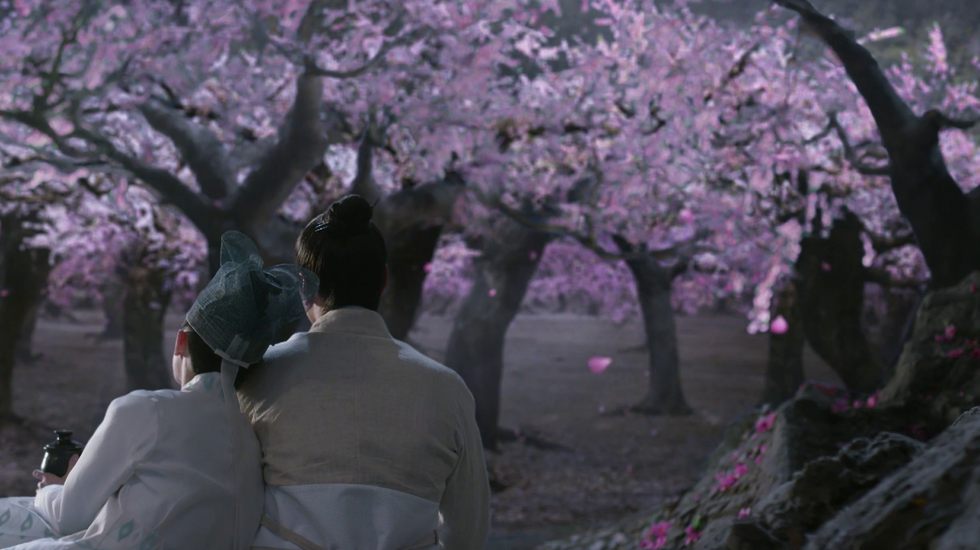
Early on in the drama, Ye Hua takes Su Su to Zhe Yan’s forest and they have a wonderful time, even stealing some sips of the high god’s peach wine while he’s away. When they return to the Chang Sea Palace afterwards, the peach blossom petal he finds and plucks off the sleeping Su Su’s shoe ominously disappears in his palm. This signified a turning point for their relationship. In other words, this is right before it all started going down the pooper.
Things come full-circle at the end for the two lovebirds, because Bai Qian and Ye Hua reunite in the peach blossom forest to start their life together for the final time. Fittingly, his typically plain, black garb is replaced with a robe that has peach blossoms embroidered all over.
Needless to say, tao hua is mentioned everywhere in Peach Blossoms. I would complain that it’s veering on the side of overkill, but to be honest, it’s a lovely little piece of symbolism, taking a commonly used term and surrounding it with beautiful imagery. In the drama, this translates to amazing cinematography that makes every shot feel like a painting.
